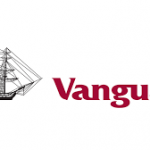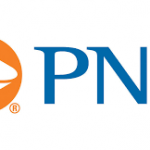Providing investment advice to plan participants is something I recommend to plan sponsors. For those investment advisors who can’t or won’t offer advice as part of their practice, I recommend that plan sponsors use a service like rj20.com, offered by Sean Ruehl.
Q: How did you start in the retirement plan business?
A: I started in the Trust Department of First Union National Bank in Charlotte, NC in 1995. I was a sales assistant helping the #1 sales team in the whole bank provide business owners fiduciary investment management services both for their personal money and corporate retirement plans. We also worked with non-profits. I say this as it was the mid-90’s and participating in non-profit investment committee meetings, showing to the committee how their investment policy statement’s guidelines were followed and what the bank did for the past year etc., was a striking contrast for me as I noted brokers were competing for this wallet share showing sexier returns with no meaningful discussion as to how those returns were possible and the risk taken to get them etc. It was also important to note how memorable it was to me to be a part of the bank’s internal trust committee meetings where you had to justify your accounts to the bank trust committee, and how you were managing the accounts, pursuant to the client’s investment objectives, and pursuant to the bank’s guidelines, so we could document in each client file what the process was and that we were following it etc. So here we are today in early 2017 when this will really be important for everyone, including brokers. I couldn’t have asked for better training and I’m grateful for it.
Q: How did you come up with rj20.com?
A: I was part of a wealth management team, who were the same people that were the co-founders for RJ20. Upon winning a new CEO client for his personal money, the CEO challenged us to come up with a solution for his employees that didn’t have the million dollar minimums. The CEO told us that if we could figure out a way to use the wealth management capabilities and tools, and not have to charge high fees or sell products to raise the revenue, then we would have something very new in the marketplace. He didn’t think advisors of this caliber could make money charging a fair fee to the average 401k participant. So we put our heads together and figured out a way we could deliver this advice in a scalable and affordable way. When we told him we took his challenge seriously, and agreed with his premise on how needed and important this service was, he was excited. He then said he would like to partner with us in providing this service. We talked to some legal and compliance advisors and figured out how to create the new entity, where the CEO would be a background owner of 20% and make introductions for me and Chip Jurgensen to explain the service to other C-level executives and business owners. Upon trying to decide on the name, we quickly realized trying to come up with a unique name for a financial advisor firm was nearly impossible. So the idea was to have something totally new so people would remember it after hearing about it. The bad risk was that no one would identify with it at first. However since this was a long term strategy, this would help forge a long term identity where we would stand alone, known for what we do, in a drowned out, competitive, marketplace with many other providers. The “R” was for my last name, the “J” was for Chip’s, and the “20” was the 20% the CEO would have for his involvement. As people enjoyed hearing the story and they remembered it and could identify with it, we never changed the name….even though our friends kidded us saying they thought it was a new malt liquor…..
Q: Do advisors understand your role in providing investment advice when they won’t?
A: Great question! Now they do! It took years for this to develop. Truth be told, we easily understood why this was a slow process since we used to be in their shoes. The challenge for advisors is that they are understandably very sensitive about their client relationships and can’t afford to make significant mistakes, much less let a new vendor in to be a part of their most trusted client relationships etc. So we had to help them understand that unlike 99% of our competitors who were software programmers or entrepreneurs trying to enter the market as newbies and make a buck, we came from their world as we used to be advisors like them. Except that we felt pulled by the passion to singularly focus on the participant and serve as a trusted vendor/partner for the advisor, to make them look better, by taking better care of the participants, than they could do themselves. Except now our service makes them take the credit for our solution in the mind of the Sponsor, and that is 100% fine with us, as that’s our goal, to make the advisor look better to the Sponsor. It’s a true win/win.
Q: Has there been an uptick in plan sponsor interest in providing advice?
A: Absolutely. Let me put it this way, whoever the idiot was that said “If you build a better mousetrap…” was never in sales in the real world. I can’t tell you how many people we meet who have the next greatest idea for financial services and they want to partner. Then we never hear from them again. To be perfectly honest, I’ll hone my criticism on ourselves now as we were those same people back in 2009 when we started. We thought we had the best thing ever…I’ll spare you the pitch. However, to the point of this question, and why I took this detour for a moment was to illustrate the main point here. TIMING of the environment you’re in. When we started, target date funds were the rage and seemingly the panacea for participants. Except glidepaths and “to retirement” versus “through retirement” became the focus of discussion of the day. So our wonderful mousetrap wasn’t seeing the volume we expected. Moreover, you didn’t read about “robo advisors” as that wasn’t in the vernacular yet. So we were really ahead of our time. So our growth has been mainly driven by advisors, and wholesalers who cater to advisors, where the motivation is to show the Sponsor there is an enhanced way to serve participants etc. However since the Fiduciary Rule, it appears that Sponsors see the world differently since they’re finding out that what they thought was “free” before, was actually embedded in the money management fee, and that only a handful of people are using a website portal to get advice, versus providing it to everyone etc. So we find ourselves living the Yogi Berra phrase deja’ vous all over again, as our initial passion we had when we started and thinking Sponsors would be easily relating to it, is now finally here. The timing is finally right for Sponsors to have increased interest in our niche.
Q: Are most of your referrals from the plan sponsor directly or from another provider?
A: I actually alluded to this in the question above. Most referrals come from advisors or the wholesalers that want to better support advisors. We started out going directly to the Sponsors by pulling 5500 data and speaking with the people who signed them. We prepared for these communications by seeing who the advice providers were and looking up their fee schedules so we could communicate this to the Sponsor contact. However we were shocked to hear them respond with “Not interested. We get this for free.”, or many other similar excuses. When we would respectfully try to bring their attention to their own filing and what their provider discloses in their ADVs, they stressed they had a great deal or were getting it for free as they don’t issue checks for it….. Clearly they were trying to get rid of us, yes. However, it was also disconcerting that they actually believed their own excuses. We quickly realized the hurdle of education was far too steep. Instead we needed to have the conversation with someone who knew the market and the issues and what we could do, while also having the ear of the Sponsor. So advisors were the perfect fit, as well as wholesalers. So that’s how this evolved.
Q: Do you think the fiduciary rule will impact your business?
A: Readers will think you gave me these questions before the interview!!!! Nice segue as I just addressed that in the previous question. Absolutely it will and already has. The timing is right as it seems the industry goes in cycles with a varying focus on a particular part of the industry (i.e. target date funds, 408(b)2, fee lawsuits, etc.). Now the focus is on the fiduciary rule and who can provide advice. So more people are keen to explore this. Especially the quasi-retirement advisors that have just a few plans.
Q: Do advisors and plan sponsors understand the difference between offering investment education and offering advice?
A: I think they do. What strikes me about this question is not so much the difference between education and advice, but their perceived importance of providing it, and at what level. The challenge for both sponsors and advisors are the myriad components of plan design to review and focus on. It seems with auto enrollment and escalation, many think this is the silver bullet that solves the problem to get participants back in line with their trajectory to a successful retirement. So it’s quite common in our experience to witness a level of apathy in our niche, due to the overconfidence in the auto enroll and escalation. Of course these are wonderful features but they still leave significant room for improvement. Just as when we started our service years ago, we were proud that our website usage was getting 30% – 60% of participants, compared to typical online advice ranging in the 2% – 5%. Some sponsors and advisors challenged us to improve our service even more and provide advice to everyone, so instead of 30% – 60% delivery, we would be at 100%. So we figured out how to do that. We do the same thing for sponsors and advisors and urge them to consider enhancing their current design and give the auto enrollment and escalation a turbo drive in being much more effective by delivering advice. Advice serves as a catalyst that engages participants in deeper way, above and beyond the target date defaults. We also give participants the ability to include all their other accounts to be sure everything is considered before they are advised to the best retirement option. Default options have no way to do this.
Q: Do your service alleviate the confusion shown by participants in choosing 401(k) investments?
A: It does. When a participant opens our report, they immediately connect with our format as it addresses the WIIFM (What’s in it for me?) Let me briefly elaborate here. When we first started, our reports were much different as we were too busy trying to impress the advisor or the sponsor. We showed all the calculations we were doing so they could see how robust our process is and that it’s actually of the caliber of the requirements as defined by the CFP Board of Standards. However, what we learned was, we were missing the mark dramatically. The problem? Our reports were too complicated for the target audience…plan participants. Advisors and sponsors are not who the reports are designed for. So instead, we simplified and tweaked until we got our reports to be in the delicate balance of simplicity and substance, without being too simplistic, or appear too analytical etc. Just as digital marketers gauge a campaign’s success on which version of their ad yields the best results, so too did we measure our reports based upon which ones received the most action. We’ve been using this format for several years now and we have people take action on our advice who are in their 50’s and don’t even own a checking account! Even people in this boat can see the importance of what we’re talking about, and they connect to the WIIFM message and take action. The same is true for the highly astute participant. They get it, and find it very convenient. So the answer to this question is a resounding yes, due to our format.
Q: Do investment advisors mistakenly see you as competition?
A: Sometimes they do. This is much less an issue today as it was in the past. As time goes by, advisors are much more willing to outsource, and not be so sensitive/insecure about discussing outsourcing with their sponsors. For the advisors who still do see us this way, once they see we have no conflicts of interest, they are almost comfortable. But, they sometimes feel insecure as they say “That’s how we sold ourselves to the sponsor. If we bring you in, the sponsor will think we are backing out of our representation.” I can understand this first glance perception. We then ask the advisor if they committed to researching all data points of an investment themselves, or instead, do they use some kind of software/service to get this data so they can immediately jump into the analytics and give their advice. They all say they use Morningstar or some other service as their time isn’t worth pulling up betas, alphas, standard deviations etc. So we respond back by saying they can now disclose to their sponsors they have an enhanced way to deliver advice to participants, through RJ20. In our experience there is one last hurdle here and that’s the advisors who tell us they want to develop their own advice, or they’re fine with their current solution of being willing to meet face-to-face when the call or email comes in. So what I’m about to say, I say respectfully, but these two positions are at the trailing end of the competitive landscape for education and advice. We talk to different advisors every day from all over the country and we learn how they’re delivering advice. Most of them are using someone like us. So when we hear an advisor say they’re going to design their own or just do meetings for those who ask for them, these are the least effective, highest time consuming, and most expensive path to take. Again, why would you use software to pull investment data, but you won’t use it for advice? You want to spend hours delivering your own? How much in time and opportunity cost will this be to your bottom line, and how many more years do participants have to wait to get advice? They wanted it yesterday. Also if your only value pitch is your willingness to meet with people, how special is that today? Who is a serious plan advisor that wouldn’t do the same? So most advisors see us as a trusted vendor partner, and one they couldn’t do without. This trend is only increasing. You can’t open an industry email without some reference to robo-advisors and how to embrace them. Hey, there’s a powerful lesson her for those who won’t change by looking at Kodak. I guess some people still believe developing film is the better way to go…
Q: How do people contact you to learn more about your services?
A: People can go to our website and fill out our form requesting a quote or call back. (www.rj20.com) Or, they can email ask@rj20.com or me directly at seanruehl@rj20.com or call our main number 877-438-7520 or call me directly at 919-949-9709.







